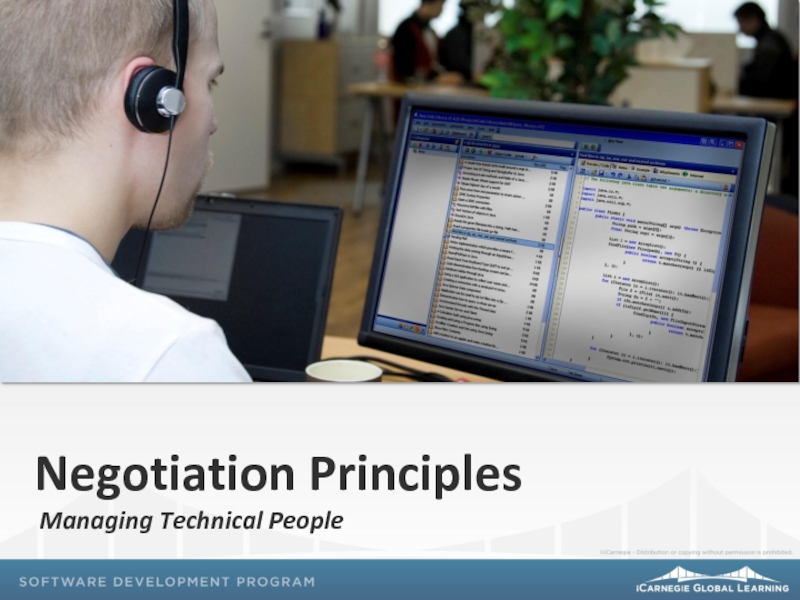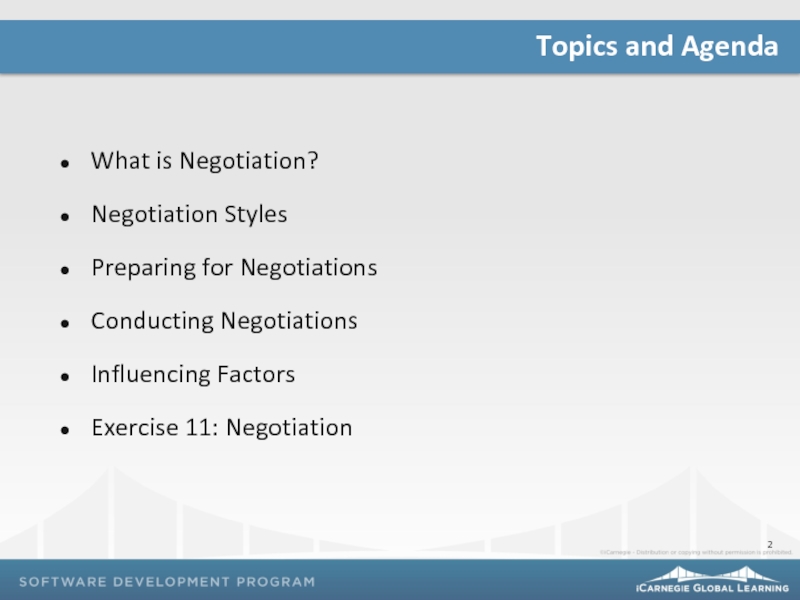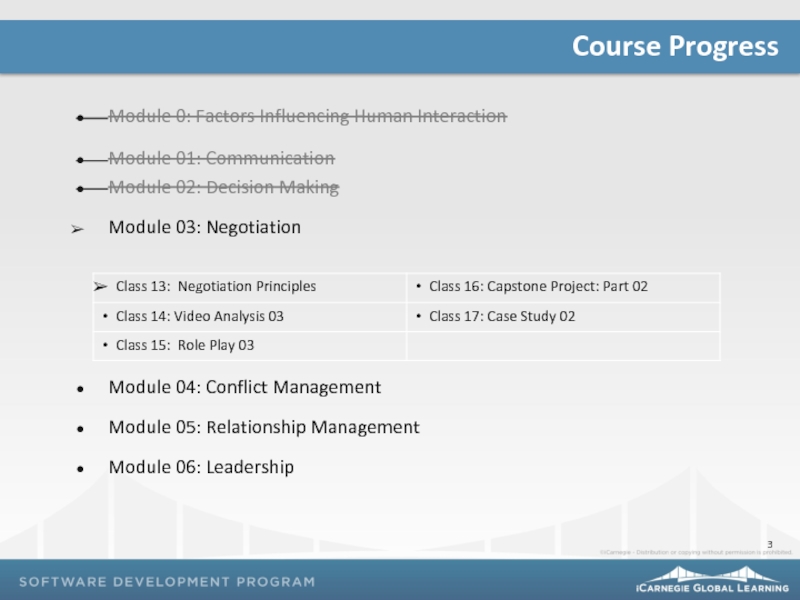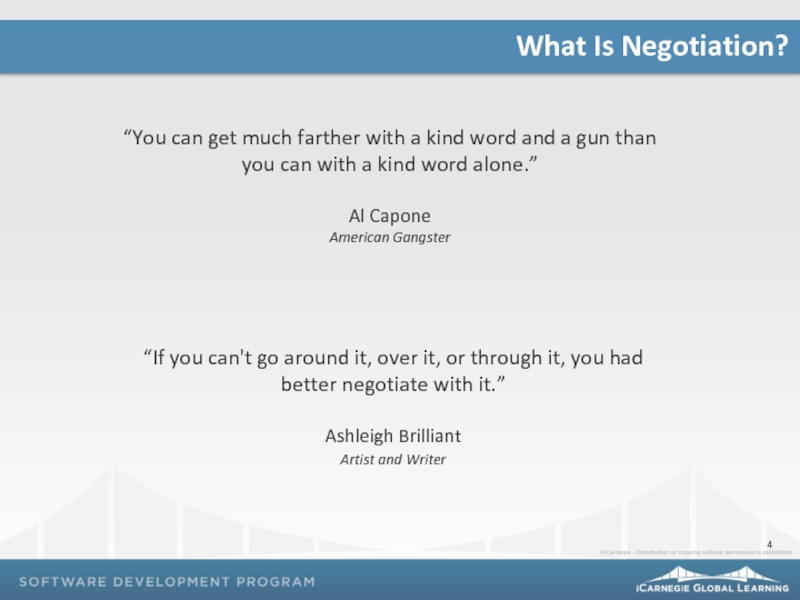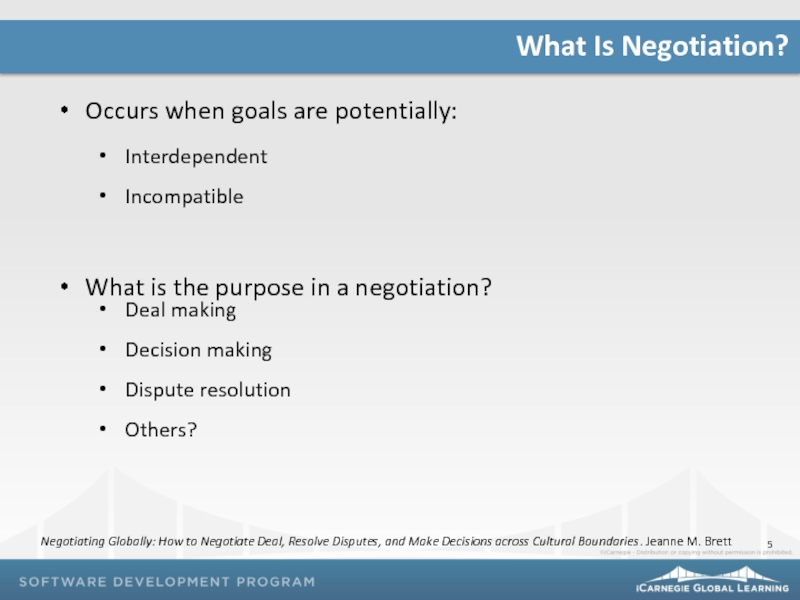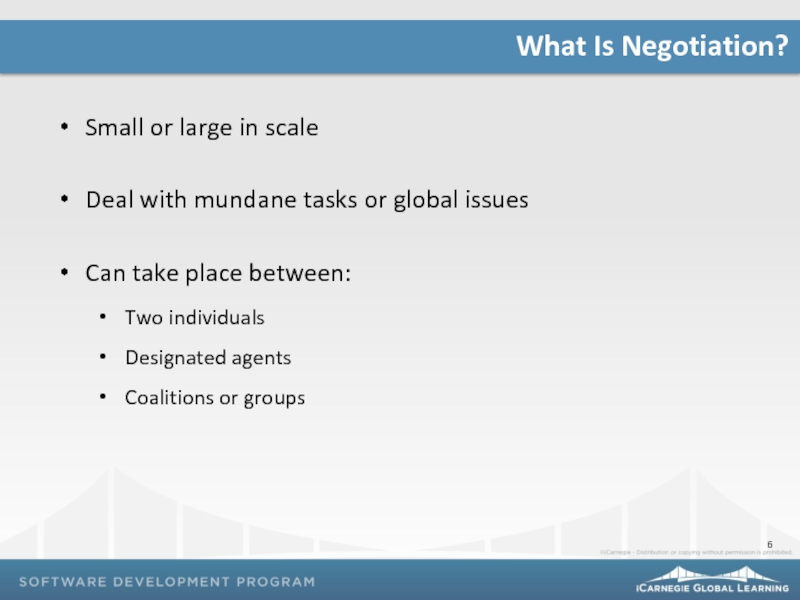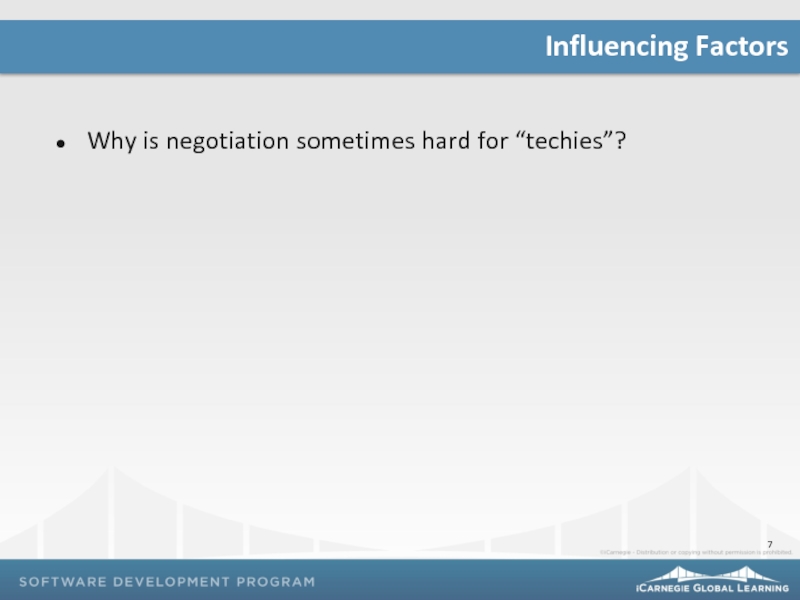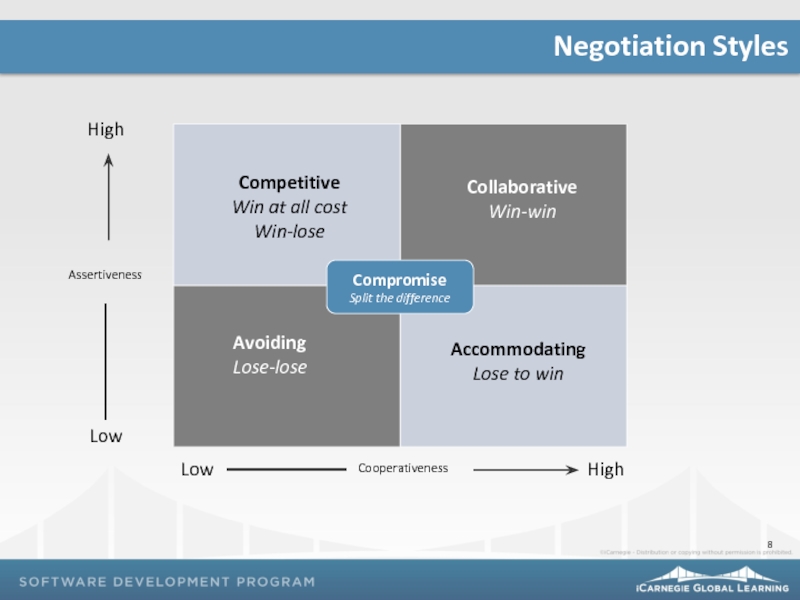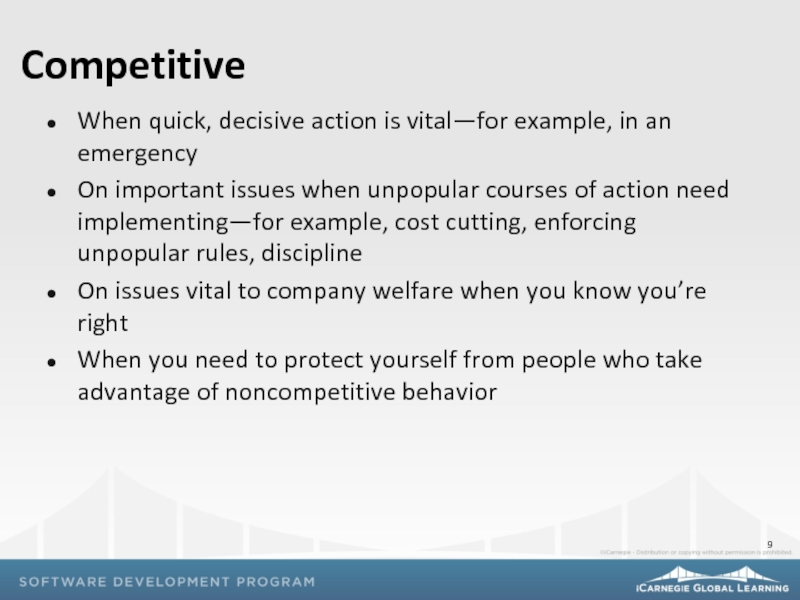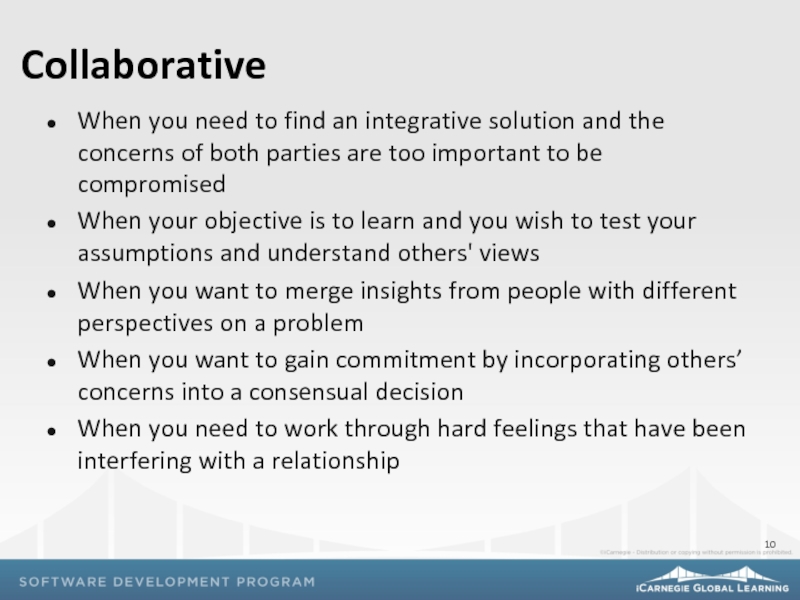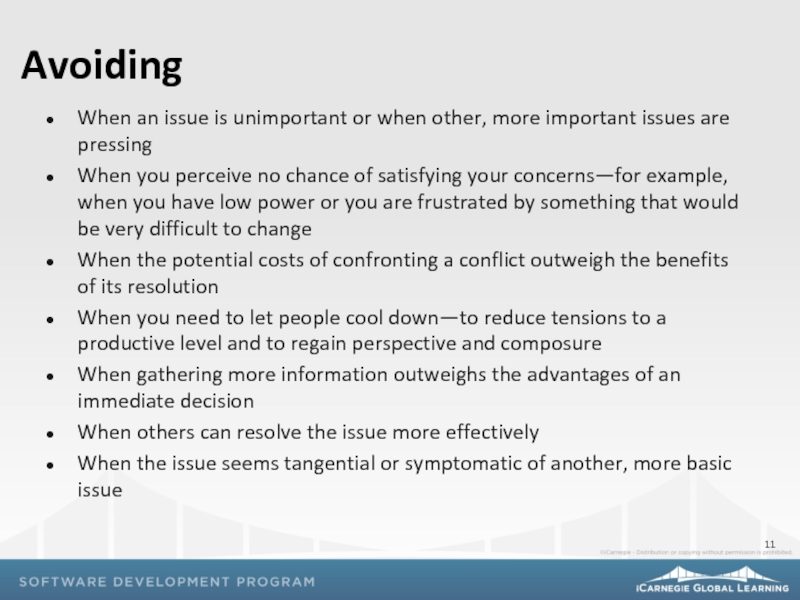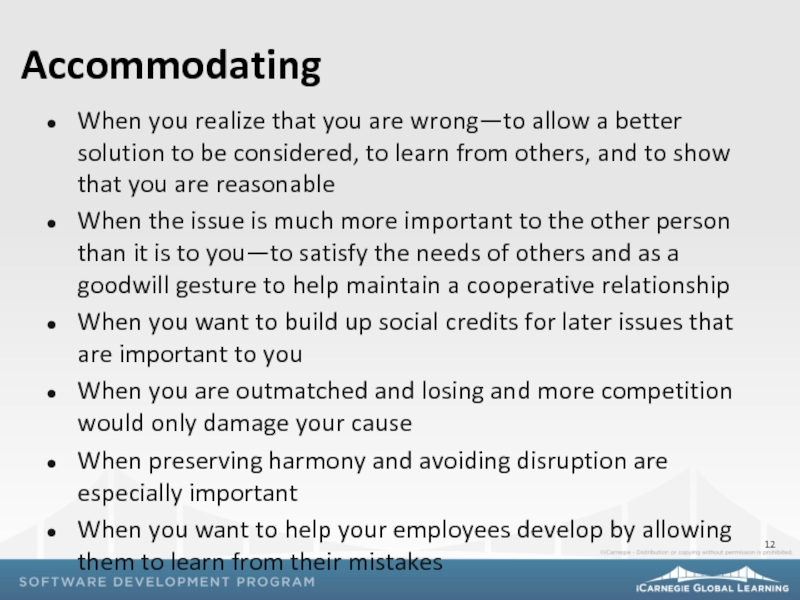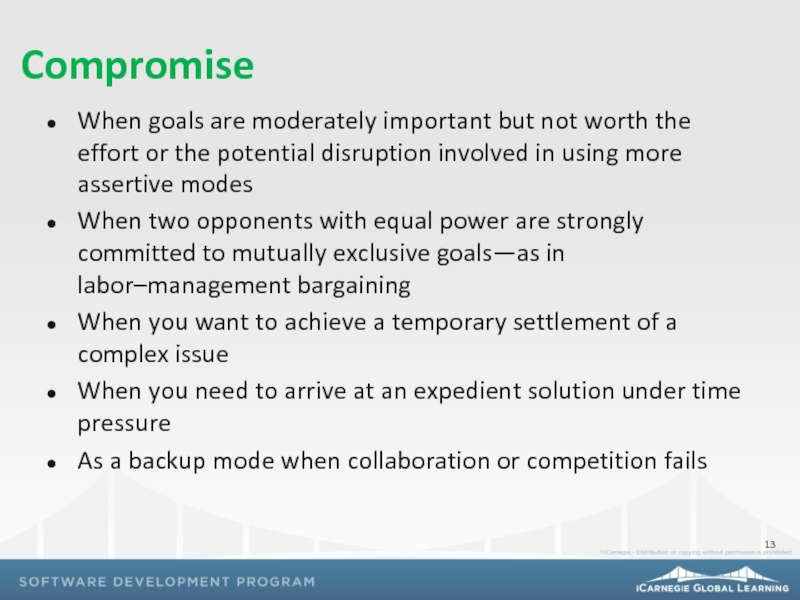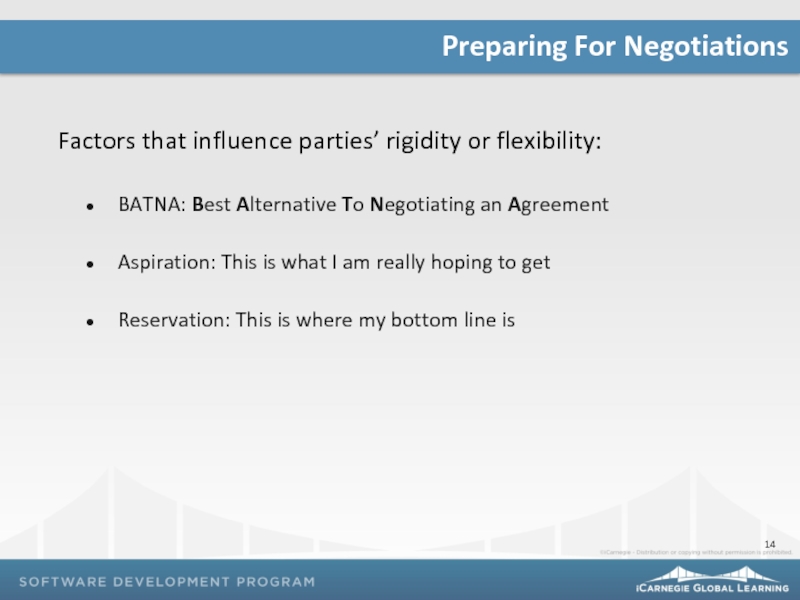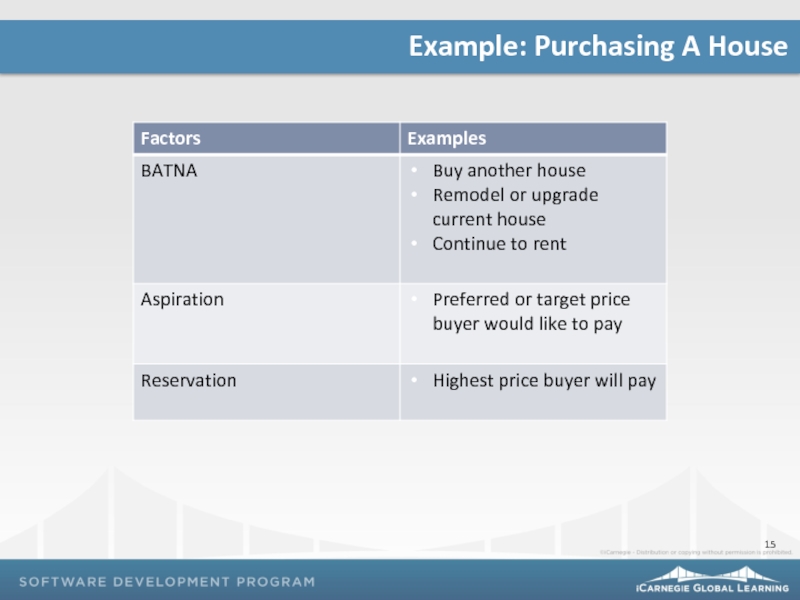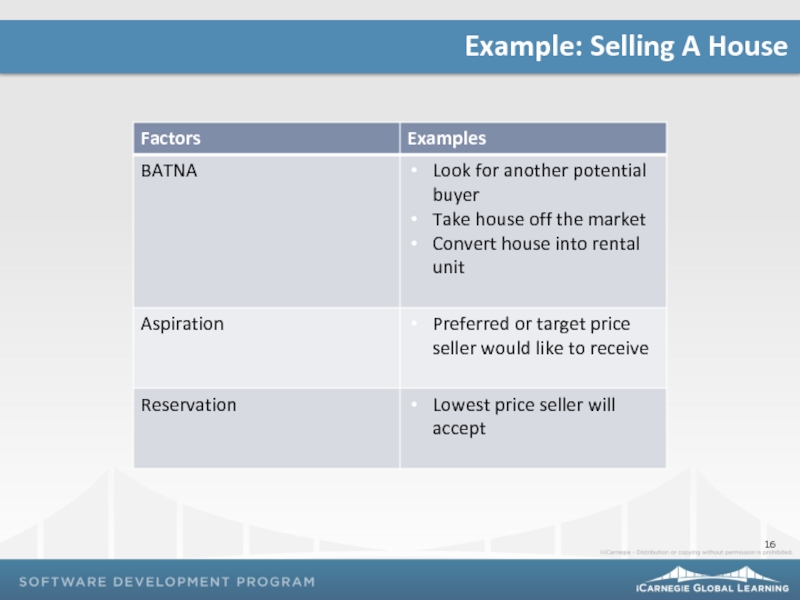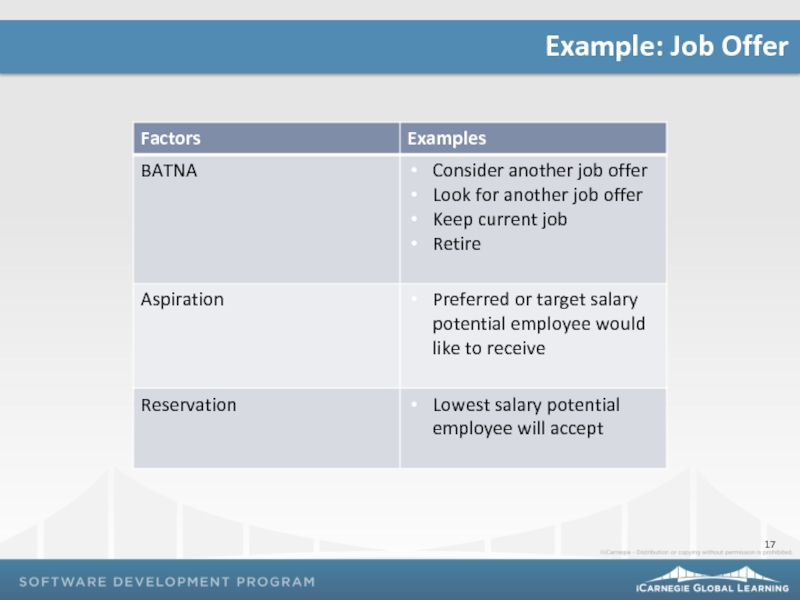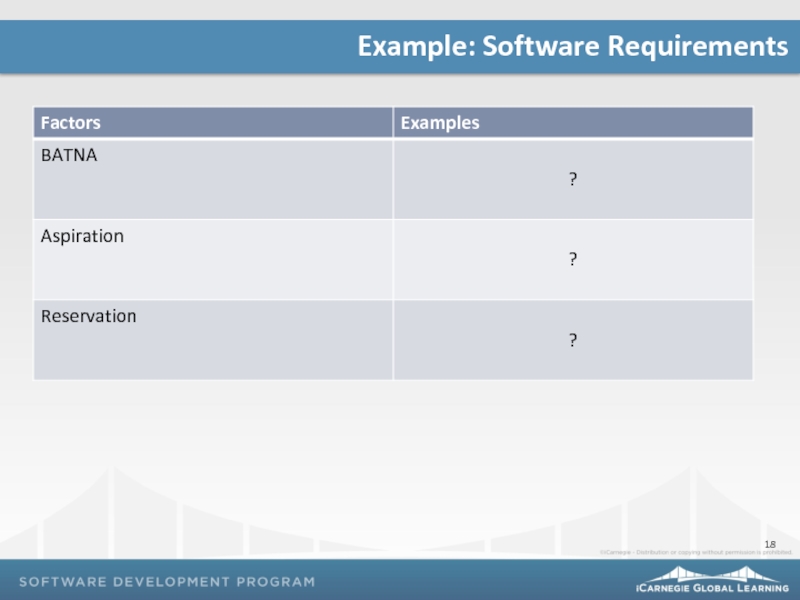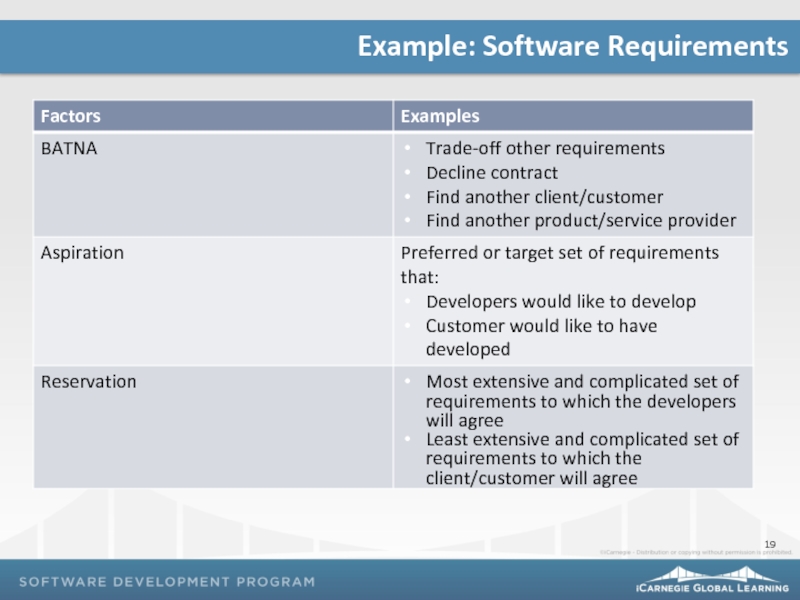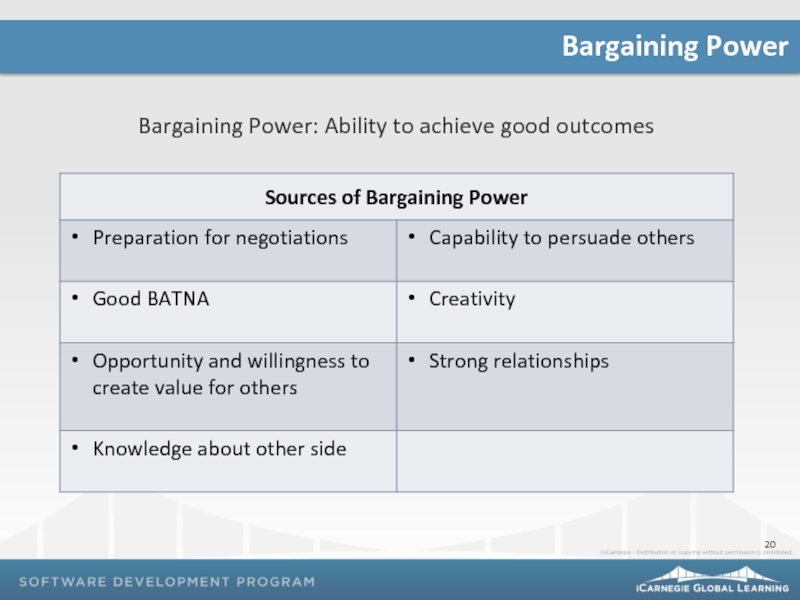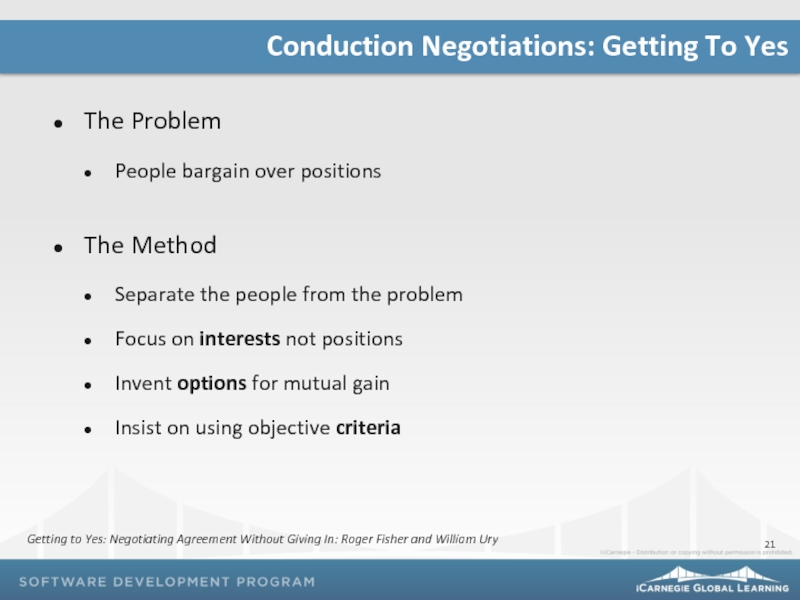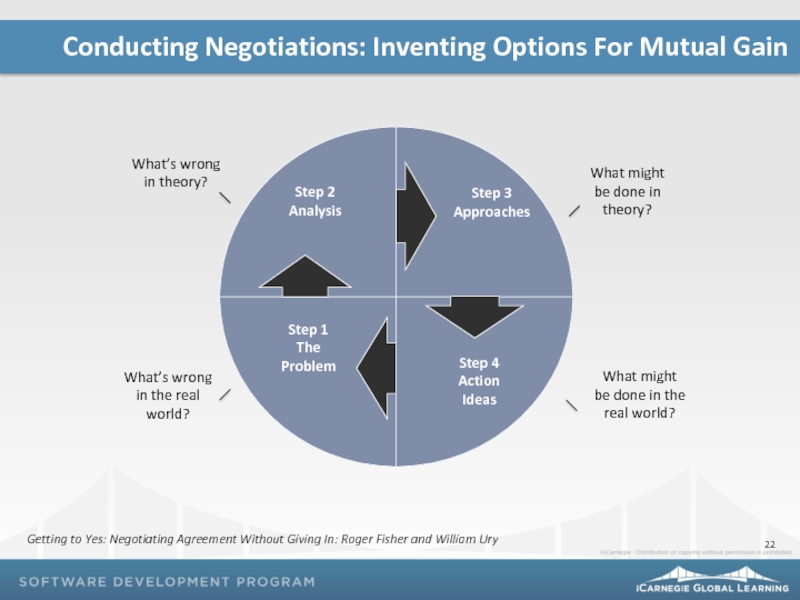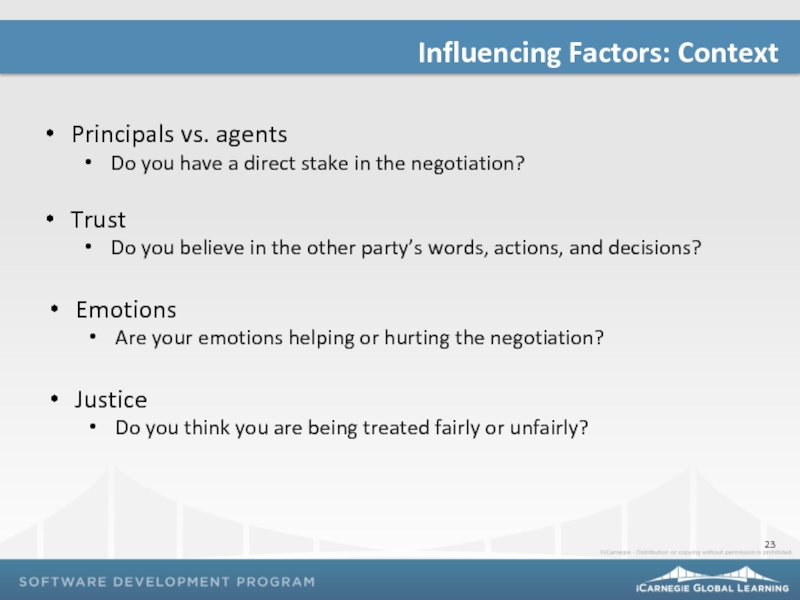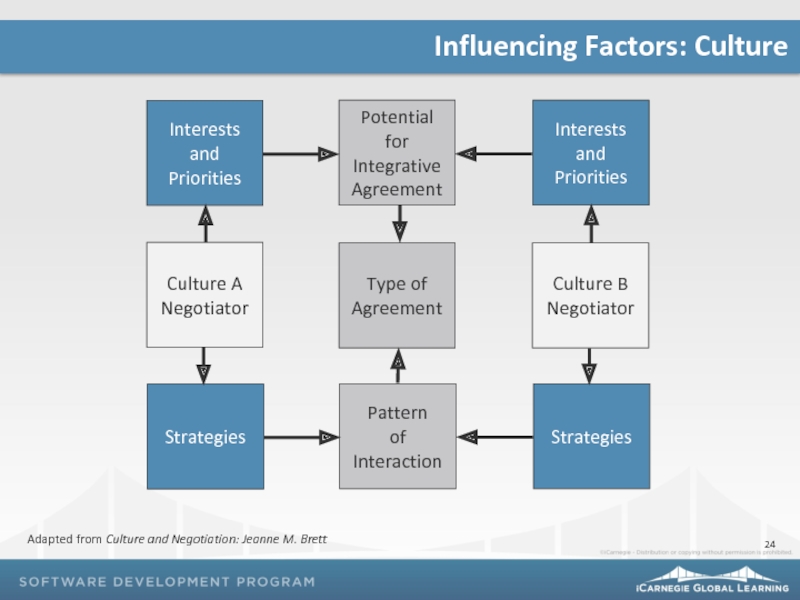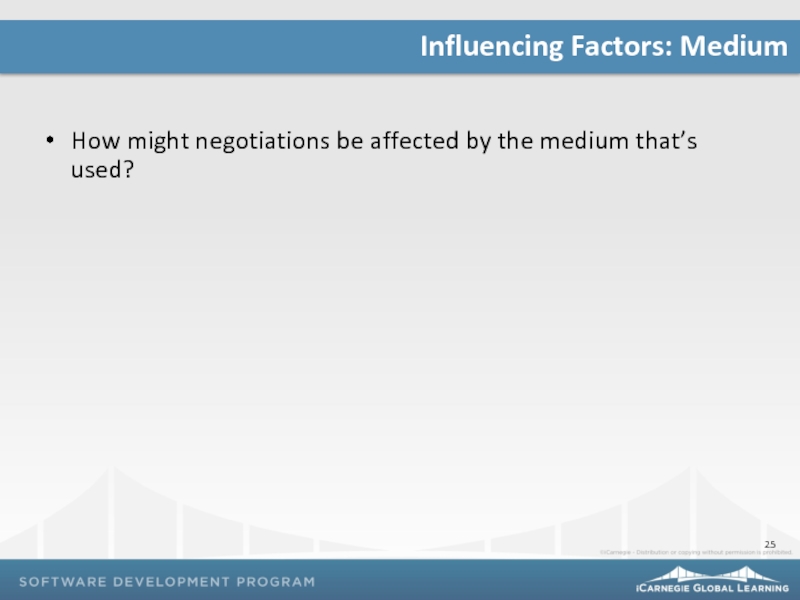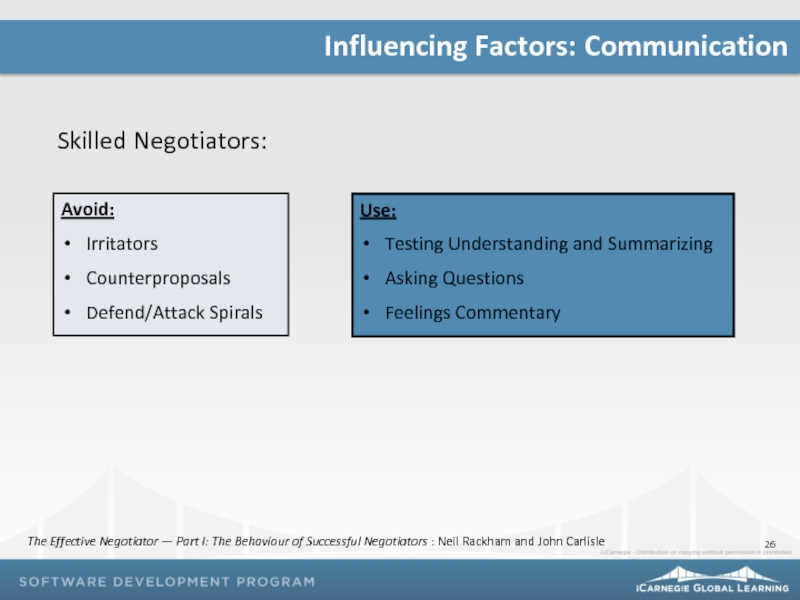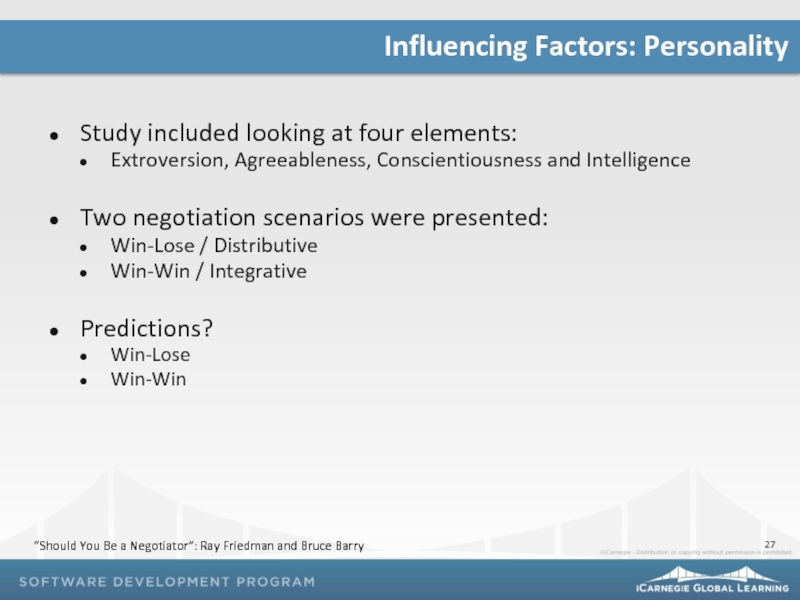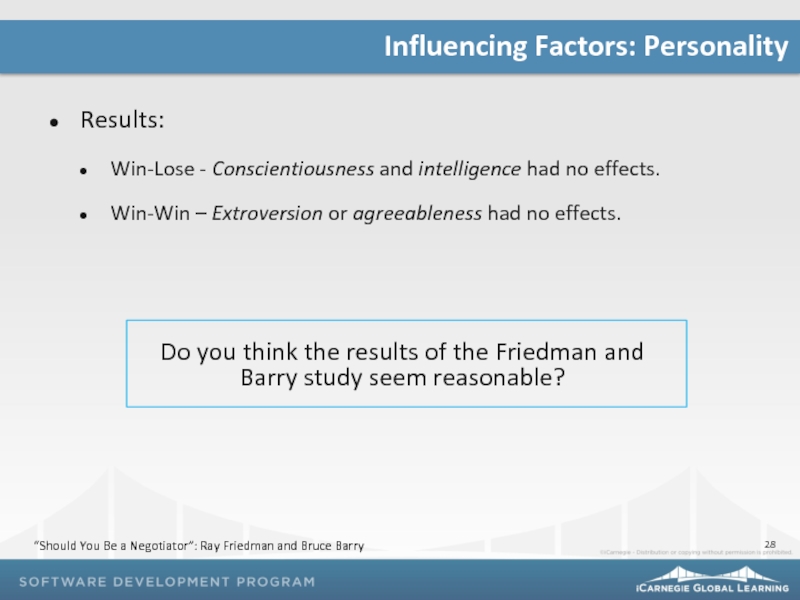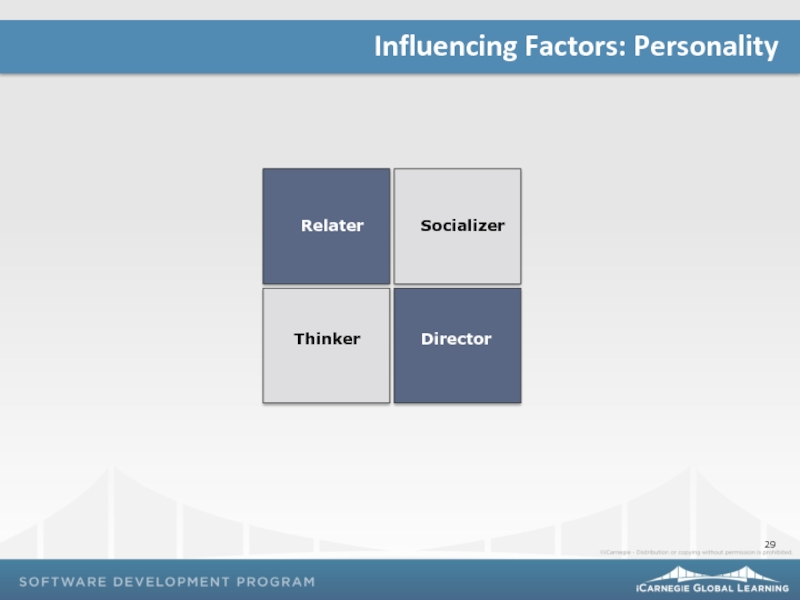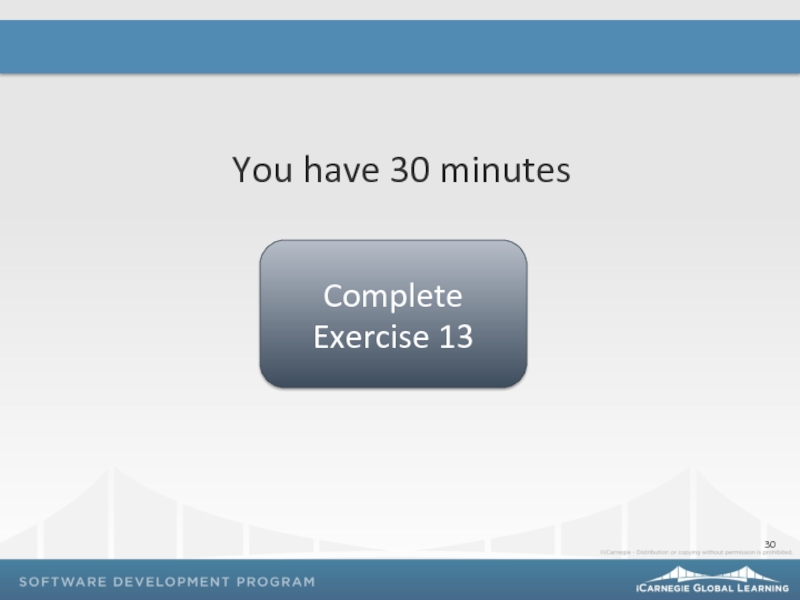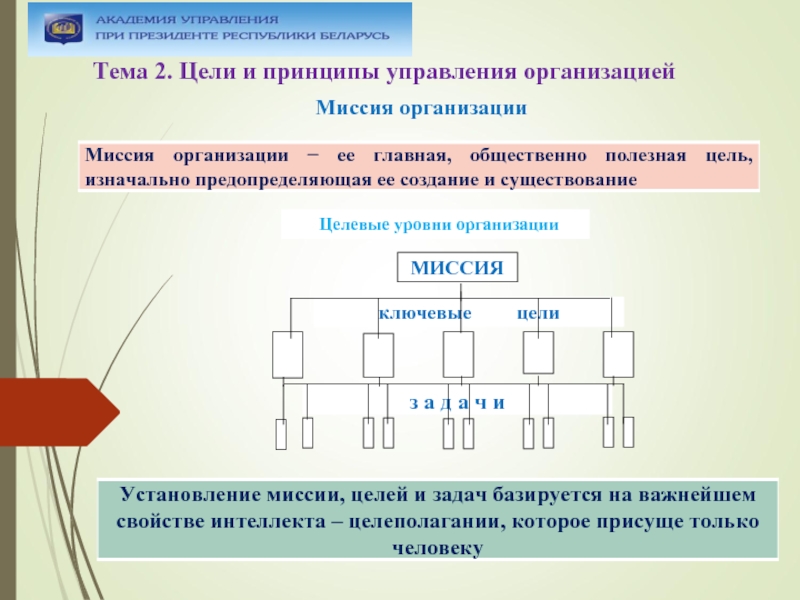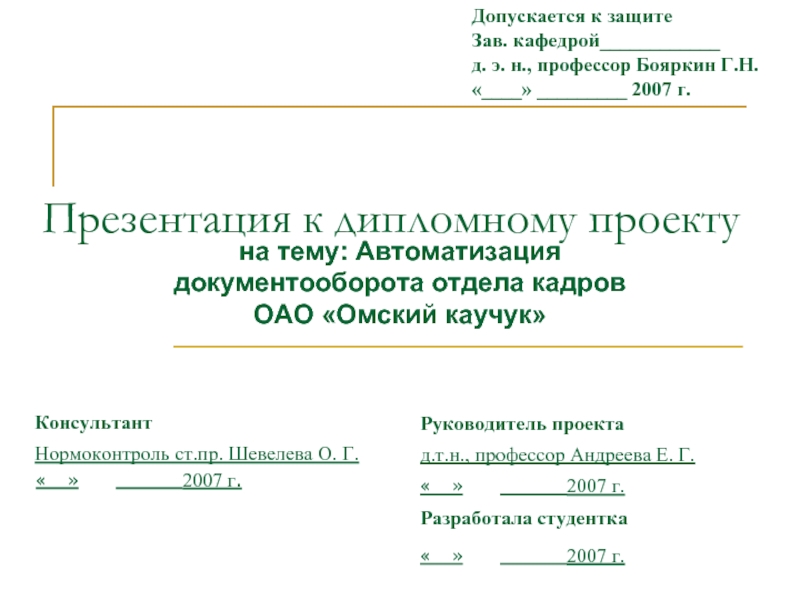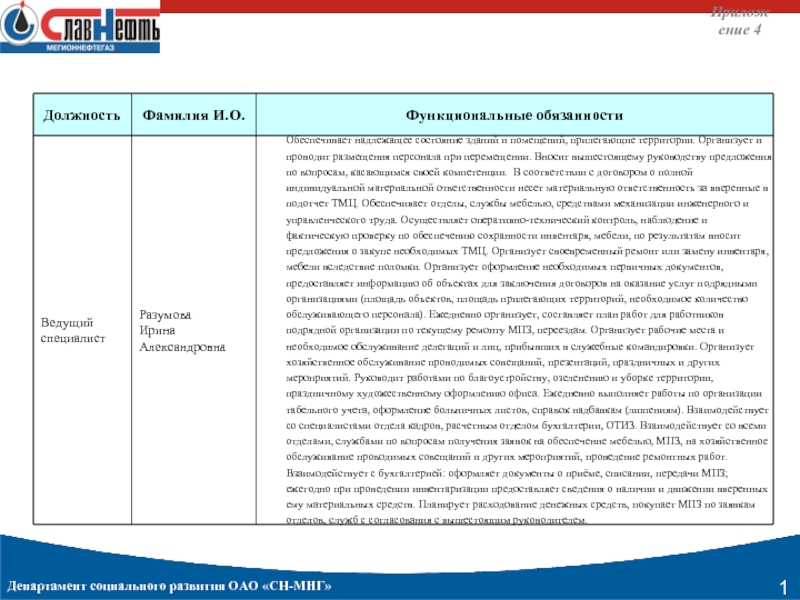- Главная
- Разное
- Дизайн
- Бизнес и предпринимательство
- Аналитика
- Образование
- Развлечения
- Красота и здоровье
- Финансы
- Государство
- Путешествия
- Спорт
- Недвижимость
- Армия
- Графика
- Культурология
- Еда и кулинария
- Лингвистика
- Английский язык
- Астрономия
- Алгебра
- Биология
- География
- Детские презентации
- Информатика
- История
- Литература
- Маркетинг
- Математика
- Медицина
- Менеджмент
- Музыка
- МХК
- Немецкий язык
- ОБЖ
- Обществознание
- Окружающий мир
- Педагогика
- Русский язык
- Технология
- Физика
- Философия
- Химия
- Шаблоны, картинки для презентаций
- Экология
- Экономика
- Юриспруденция
Negotiation principles презентация
Содержание
- 1. Negotiation principles
- 2. What is Negotiation? Negotiation Styles Preparing
- 3. Course Progress Module 0: Factors Influencing
- 4. What Is Negotiation? “You can get
- 5. What Is Negotiation? Occurs when goals
- 6. What Is Negotiation? Small or large
- 7. Influencing Factors Why is negotiation sometimes hard for “techies”?
- 8. Negotiation Styles
- 9. Competitive When quick, decisive action is vital—for
- 10. Collaborative When you need to find an
- 11. Avoiding When an issue is unimportant or
- 12. Accommodating When you realize that you are
- 13. Compromise When goals are moderately important but
- 14. Preparing For Negotiations Factors that
- 15. Example: Purchasing A House
- 16. Example: Selling A House
- 17. Example: Job Offer
- 18. Example: Software Requirements
- 19. Example: Software Requirements
- 20. Bargaining Power Bargaining Power: Ability to achieve good outcomes
- 21. Conduction Negotiations: Getting To Yes The
- 22. Conducting Negotiations: Inventing Options For Mutual
- 23. Influencing Factors: Context Principals vs.
- 24. Influencing Factors: Culture Adapted from Culture and Negotiation: Jeanne M. Brett
- 25. Influencing Factors: Medium How might negotiations
- 26. Influencing Factors: Communication The Effective
- 27. Influencing Factors: Personality Study included
- 28. Influencing Factors: Personality Results: Win-Lose
- 29. Influencing Factors: Personality Socializer Director Thinker Relater
- 30. You have 30 minutes Complete Exercise 13
Слайд 2
What is Negotiation?
Negotiation Styles
Preparing for Negotiations
Conducting Negotiations
Influencing Factors
Exercise 11: Negotiation
Topics and Agenda
Слайд 3
Course Progress
Module 0: Factors Influencing Human Interaction
Module 01: Communication
Module
Module 03: Negotiation
Module 04: Conflict Management
Module 05: Relationship Management
Module 06: Leadership
Слайд 4
What Is Negotiation?
“You can get much farther with a kind word
Al Capone
American Gangster
“If you can't go around it, over it, or through it, you had better negotiate with it.”
Ashleigh Brilliant
Artist and Writer
Слайд 5
What Is Negotiation?
Occurs when goals are potentially:
Interdependent
Incompatible
What is the purpose in
Deal making
Decision making
Dispute resolution
Others?
Negotiating Globally: How to Negotiate Deal, Resolve Disputes, and Make Decisions across Cultural Boundaries. Jeanne M. Brett
Слайд 6
What Is Negotiation?
Small or large in scale
Deal with mundane tasks or
Can take place between:
Two individuals
Designated agents
Coalitions or groups
Слайд 9Competitive
When quick, decisive action is vital—for example, in an emergency
On
On issues vital to company welfare when you know you’re right
When you need to protect yourself from people who take advantage of noncompetitive behavior
Слайд 10Collaborative
When you need to find an integrative solution and the concerns
When your objective is to learn and you wish to test your assumptions and understand others' views
When you want to merge insights from people with different perspectives on a problem
When you want to gain commitment by incorporating others’ concerns into a consensual decision
When you need to work through hard feelings that have been interfering with a relationship
Слайд 11Avoiding
When an issue is unimportant or when other, more important issues
When you perceive no chance of satisfying your concerns—for example, when you have low power or you are frustrated by something that would be very difficult to change
When the potential costs of confronting a conflict outweigh the benefits of its resolution
When you need to let people cool down—to reduce tensions to a productive level and to regain perspective and composure
When gathering more information outweighs the advantages of an immediate decision
When others can resolve the issue more effectively
When the issue seems tangential or symptomatic of another, more basic issue
Слайд 12Accommodating
When you realize that you are wrong—to allow a better solution
When the issue is much more important to the other person than it is to you—to satisfy the needs of others and as a goodwill gesture to help maintain a cooperative relationship
When you want to build up social credits for later issues that are important to you
When you are outmatched and losing and more competition would only damage your cause
When preserving harmony and avoiding disruption are especially important
When you want to help your employees develop by allowing them to learn from their mistakes
Слайд 13Compromise
When goals are moderately important but not worth the effort or
When two opponents with equal power are strongly committed to mutually exclusive goals—as in labor–management bargaining
When you want to achieve a temporary settlement of a complex issue
When you need to arrive at an expedient solution under time pressure
As a backup mode when collaboration or competition fails
Слайд 14
Preparing For Negotiations
Factors that influence parties’ rigidity or flexibility:
BATNA:
Aspiration: This is what I am really hoping to get
Reservation: This is where my bottom line is
Слайд 21
Conduction Negotiations: Getting To Yes
The Problem
People bargain over positions
The Method
Separate the
Focus on interests not positions
Invent options for mutual gain
Insist on using objective criteria
Getting to Yes: Negotiating Agreement Without Giving In: Roger Fisher and William Ury
Слайд 22
Conducting Negotiations: Inventing Options For Mutual Gain
Step 1
The
Problem
Step 4
Action Ideas
Step
Approaches
Step 2
Analysis
What’s wrong in theory?
What’s wrong in the real world?
What might be done in theory?
What might be done in the real world?
Getting to Yes: Negotiating Agreement Without Giving In: Roger Fisher and William Ury
Слайд 23
Influencing Factors: Context
Principals vs. agents
Do you have a direct stake
Trust
Do you believe in the other party’s words, actions, and decisions?
Emotions
Are your emotions helping or hurting the negotiation?
Justice
Do you think you are being treated fairly or unfairly?
Слайд 26
Influencing Factors: Communication
The Effective Negotiator — Part I: The Behaviour
Слайд 27
Influencing Factors: Personality
Study included looking at four elements:
Extroversion, Agreeableness, Conscientiousness
Two negotiation scenarios were presented:
Win-Lose / Distributive
Win-Win / Integrative
Predictions?
Win-Lose
Win-Win
“Should You Be a Negotiator”: Ray Friedman and Bruce Barry
Слайд 28
Influencing Factors: Personality
Results:
Win-Lose - Conscientiousness and intelligence had no effects.
Win-Win
Do you think the results of the Friedman and Barry study seem reasonable?
“Should You Be a Negotiator”: Ray Friedman and Bruce Barry
